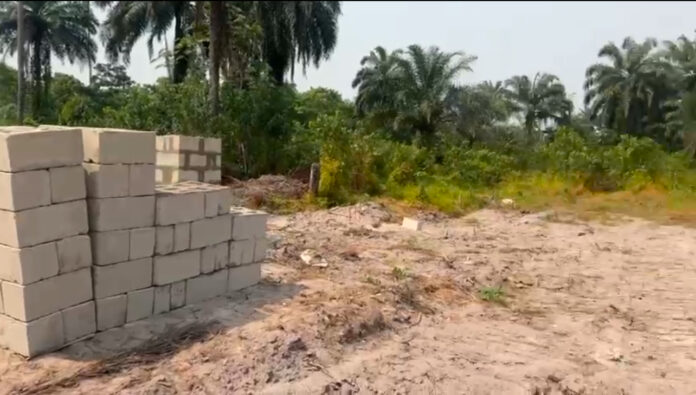So you’ve got some money saved up and you’re wondering, “What investment has the highest return in Nigeria?” You’re hearing a lot of buzz about real estate, especially land banking and land flipping—but you’re not exactly sure what they mean or which is better for you.
You’re not alone, my friend. In Nigeria today, more people are moving from “just saving” to “investing wisely.” But with so many real estate options available, it’s easy to get confused.
Let’s break it down, one step at a time, and by the end of this post, you’ll know exactly which real estate strategy fits your goals. Whether you’re a newbie investor or already deep in the game, this is a conversation you don’t want to miss.
What is Land Banking?
Land banking is the practice of buying undeveloped land in anticipation that its value will increase over time. You’re basically securing land now (when it’s still affordable), waiting for urban development or infrastructure to catch up, and then cashing out big later. It’s like buying land in GRA, Port Harcourt 10 years ago. If you did, omo! You for dey smile now.
This strategy answers the question, “Is land banking a good investment in Nigeria?” Absolutely, yes—especially in fast-developing areas.
What is Land Flipping?
On the other hand, land flipping is a short-term investment strategy. You buy land at a lower price and sell it quickly at a higher price—often within months. The goal is to make profit fast, sometimes without even holding the land for long.
Think of it like buying land from distress sellers or in bulk and selling in pieces. That’s sharp business.
So which is better?
Honestly, it depends on your investment goals.
If you’re asking, “Which investment gives the highest ROI?” or “How profitable is land banking?”—then land banking is for you if you’re playing the long game. You can buy land now in places like Isiokpo, Igwuruta-ali or Omagwa and hold it. In 3 to 5 years, you may see 100% to 300% returns. That’s not hype, that’s Nigerian real estate reality.
Now, if you’re asking “Which investment has the highest risk and return?”—land flipping wins. It’s fast, exciting, and if you know what you’re doing, you can double your money in months. But it also comes with risks: fake documents, wrong location, and bad timing can mess up your returns.
Let’s also touch on a few common questions:
-
“What type of land is most profitable?”
Lands in fast-developing urban outskirts with government allocation or C of O. Don’t just buy bush—buy strategic bush. -
“Where is the best place to buy land in Nigeria?”
Today, areas like Port Harcourt (Mbodo-Aluu, Eneka), Lagos outskirts (Epe, Ibeju-Lekki), and Abuja expansion zones are hot. Ask yourself: Where are people moving to? That’s where you should buy. -
“How to start land banking?”
Start with a trusted real estate company (like ours), identify a growing location, make an initial deposit (as low as ₦500k–₦1M in some estates), and spread the balance. It’s easier than many people think. -
“What type of property has the highest ROI?”
Honestly, it’s land—especially raw land in high-growth zones. Buildings depreciate, but land appreciates. No cap. -
“Is buying land a good investment in Nigeria?”
With inflation on the rise and naira fluctuating, land is one of the best forms of investment in Nigeria right now. You sleep, wake up, and your land has gained value. Na who no buy go explain tire.
Now that you know the difference between land banking and land flipping, it’s time to take action. Are you a long-term investor looking to plant and wait? Land banking is your path. Want to buy and sell fast for quick profits? Go for land flipping.
Either way, we can guide you.
At WinRealty, we offer you verified land in high-growth areas at affordable prices with flexible payment plans. Whether you want to flip or bank, we’ve got your back.
Ready to get started?
Call or WhatsApp us now on (+234 704 780 0020)!
Don’t just save—invest smart. Real estate is not just land; it’s a legacy.

